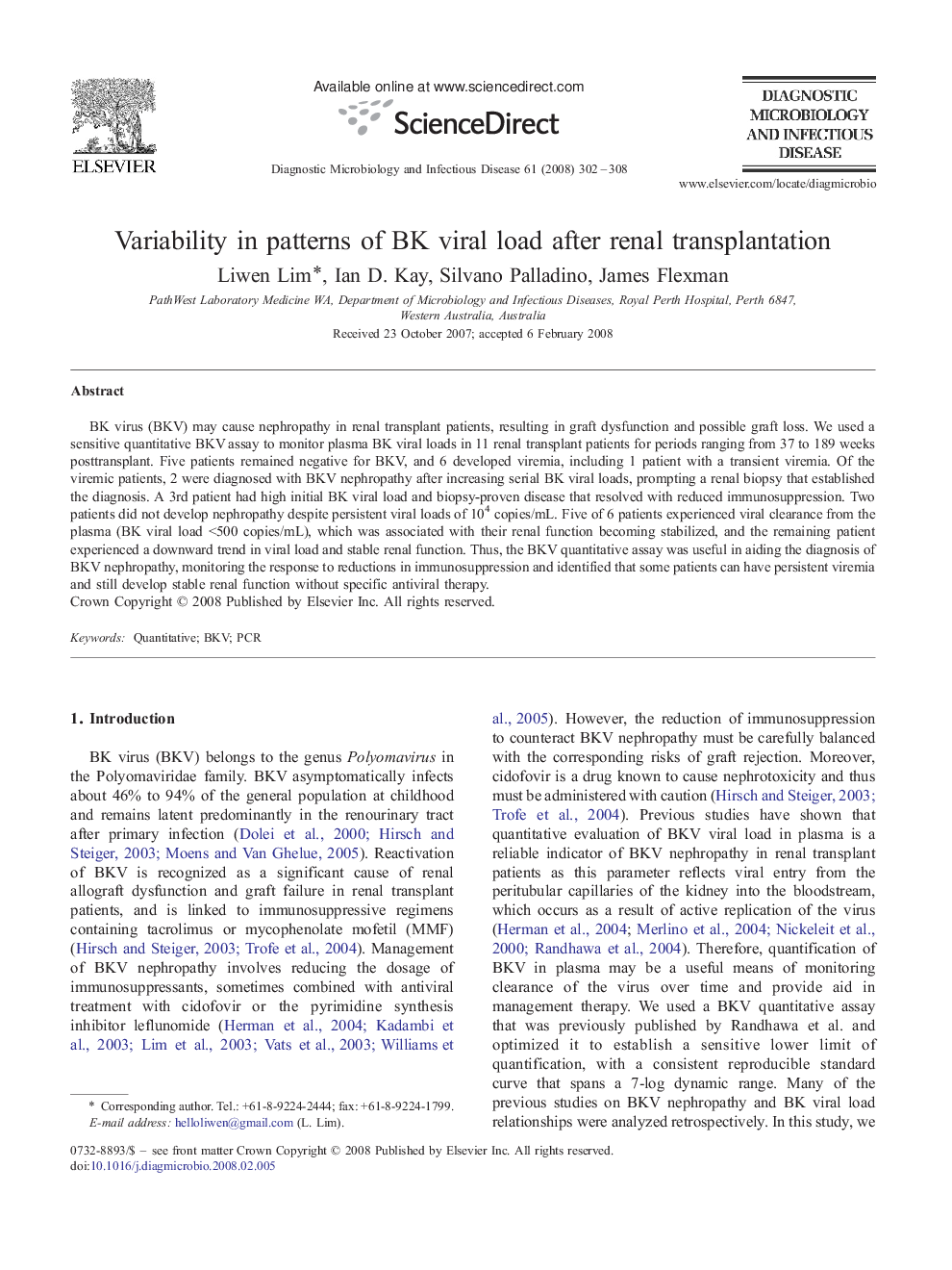| Article ID | Journal | Published Year | Pages | File Type |
|---|---|---|---|---|
| 3347698 | Diagnostic Microbiology and Infectious Disease | 2008 | 7 Pages |
BK virus (BKV) may cause nephropathy in renal transplant patients, resulting in graft dysfunction and possible graft loss. We used a sensitive quantitative BKV assay to monitor plasma BK viral loads in 11 renal transplant patients for periods ranging from 37 to 189 weeks posttransplant. Five patients remained negative for BKV, and 6 developed viremia, including 1 patient with a transient viremia. Of the viremic patients, 2 were diagnosed with BKV nephropathy after increasing serial BK viral loads, prompting a renal biopsy that established the diagnosis. A 3rd patient had high initial BK viral load and biopsy-proven disease that resolved with reduced immunosuppression. Two patients did not develop nephropathy despite persistent viral loads of 104 copies/mL. Five of 6 patients experienced viral clearance from the plasma (BK viral load <500 copies/mL), which was associated with their renal function becoming stabilized, and the remaining patient experienced a downward trend in viral load and stable renal function. Thus, the BKV quantitative assay was useful in aiding the diagnosis of BKV nephropathy, monitoring the response to reductions in immunosuppression and identified that some patients can have persistent viremia and still develop stable renal function without specific antiviral therapy.
